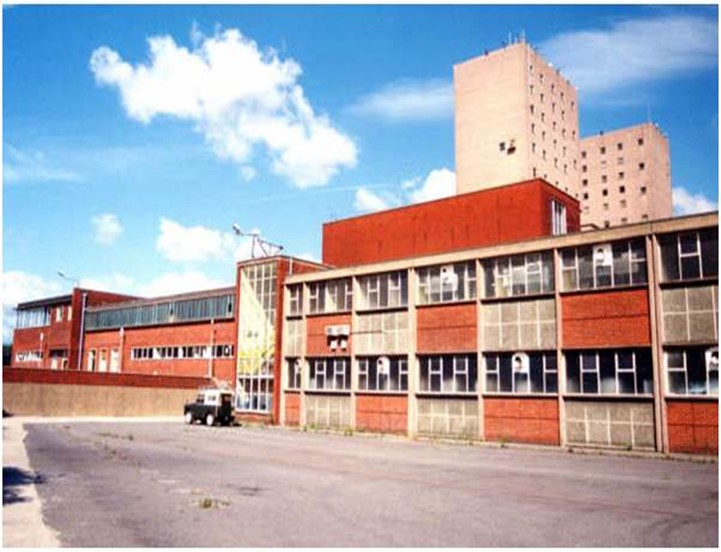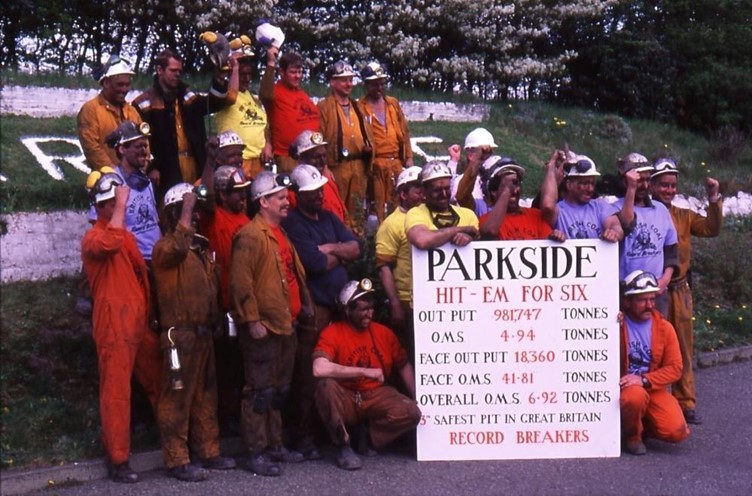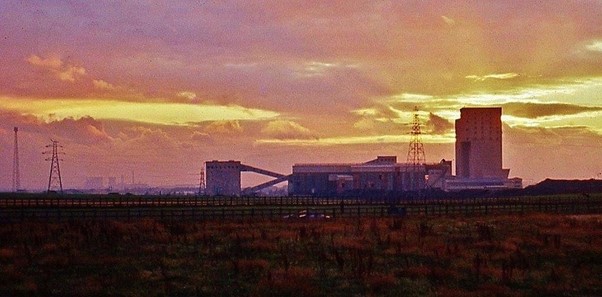Parkside
History
Establishment
& operations
Parkside Colliery’s development commenced in 1957, marking a period of substantial investment in the UK’s coal industry.
Sinking operations targeted the Crombouke and Lower Florida seams at a depth of 886 yards. By 1964, Parkside Colliery began production, eventually employing more than 2,000 workers. This influx of employment opportunities bolstered the local economy while reinforcing Newton-le-Willows’ reputation as a hub for coal mining.

Community
Impact
The colliery was more than just an industrial enterprise; it quickly became the lifeblood of Newton-le-Willows.
Generations of families found employment within its depths, creating a tight-knit, self-reliant coal mining community. The pride associated with contributing to the nation’s energy needs was palpable, and the colliery became a symbol of the town’s industrious spirit.

As well as coal, by 1980 Parkside was producing 9.5 million therms of gas annually
Technological
Innovations
The colliery was notable for its adoption of advanced technologies. Two massive Koepe winding towers, standing at close to 60 meters, were constructed over the shafts.
No.1 Shaft was designated for men and materials, while No.2 Shaft used 15-tonne skips for coal winding. Surface installations included a coal preparation plant, twin ventilation fans, and an electricity substation. In 1977, a £750,000 reorganization of the coal preparation plant enhanced product quality and reduced maintenance costs.
Methane drainage was another area of innovation. Initially, extracted methane was burned in the colliery’s boilers or vented into the atmosphere. In August 1978, the NCB entered into an agreement with Joseph Crosfield & Sons Ltd., a chemical manufacturer in Warrington, to supply methane via a 12km pipeline. By May 1980, the pipeline was operational, transporting 9.5 million therms of gas annually, with capacity increasing to between 12 and 15 million therms per year by 1983.
Closure &
Aftermath
Parkside Colliery ceased operations in 1993, marking the end of deep coal mining in the Lancashire Coalfield.
Despite its contributions and innovations, by this time, it could no longer produce coal competitively in an evolving energy market. The closure was a significant blow to the community, resulting in job losses and a period of economic transition.
The legacy of Parkside Colliery endures in the collective memory of Newton-le-Willows. The site remains a testament to the area’s rich industrial heritage and the pivotal role it played in the lives of its residents.

Contact the
Joint agents
-
Steve Johnson
- E: steve@b8re.com
- M: 07771 888 363
- T: 01925 320 520
- W: B8re.com
-

Rob Tilley